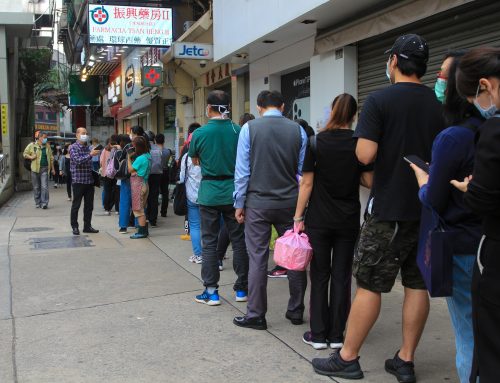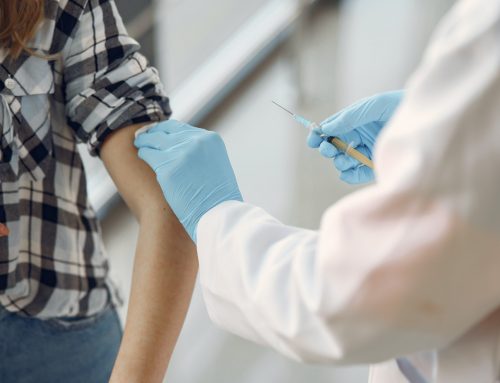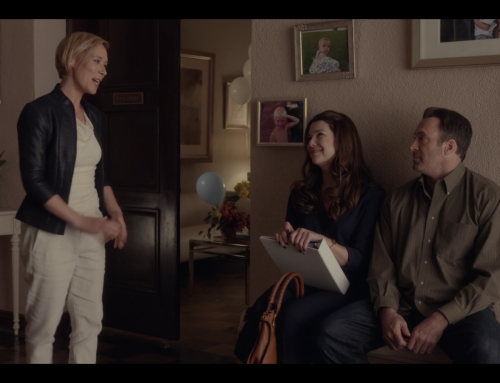An Interview with Dr. Lainie Ross
Dr. Lainie Ross is the Carolyn and Matthew Bucksbaum Professor of Clinical Ethics; Professor of Pediatrics, Medicine, Surgery and The College; and Associate Director of the Maclean Center for Clinical Medical Ethics, at the University of Chicago.
On November 2nd, Dr. Ross joined us at the Rotman Institute as part of our speaker series to discuss deceased donor kidney allocation.
After her lecture, Dr. Ross kindly agreed to an interview and what follows are some questions and her thoughtful responses:
Q1. What motivates your research?
My life dream was to become the orthopedist for the New York Yankees. As I was finishing my undergraduate studies in the Woodrow Wilson School of International and Public Affairs at Princeton University (with a focus in democratic theory), I chanced upon a course entitled Christian Ethics by Paul Ramsey. Part of the class was focused on medical ethics (See Ramsey, Patient as Person, Yale University Press, 1970). Ramsey argued that parents could not ethically enrol their children in minimal risk research. He understood, however, that research was needed. His solution was that physicians must “sin bravely”.
The answer was totally unsatisfying but I did not have the tools to argue with him. I declared that day that I would eventually figure out the errors in his argument about children in research (and many other topics that we discussed in that class). This declaration led me to change my career goals from orthopedics to pediatrics and to pursue a PhD in philosophy. The faculty at University of Pennsylvania School of Medicine and the Yale University Department of Philosophy were very tolerant.
30 years later, my experience with Paul Ramsey still motivates me. But along the way, I was fortunate to get to work with Jay Katz, a psychiatrist who taught in the Yale Law School for over 40 years. Jay was born in Nazi Germany and was spent his entire career worried about vulnerable populations. His work on promoting the rights of those with mental illness was very instrumental to policies here and abroad. Jay was also convinced that children were an oppressed group and sought to promote children’s rights. While Jay and I both were strong advocates for children’s positive rights to food and shelter, safety and health care, Jay also sought to give children the right to make their own health care decisions and the right to greater autonomy from their parents. I was and remain more convinced that this was not the right solution: children needed a loving family and that within loving families, parents needed broad discretion on how to raise their children and that they had the right to make many decisions for and on behalf of their children. Jay and I never did reach consensus, but it was with his support and guidance that I finally developed a response to Ramsey.
Once I arrived at the University of Chicago as a junior faculty member, my areas of research expanded quickly. I was challenged by Mary Mahowald, a philosopher in the department of obstetrics and gynecology to engage in genetics; and I accepted the offer by several transplant surgeons, especially Dick Thistlethwaite, to engage with them in thinking about ethical and policy questions regarding organ transplantation. In all of these areas (pediatrics, genetics and transplantation), I have focused on vulnerable populations, health care disparities, and the normative implications of health care policies, both intended and unintended.
Q2. In your opinion, how can ‘applied philosophy’ accommodate moral plurality/diversity in the community?
My whole approach to pediatric ethics starts with the premise that there is no objective best way to raise children and in fact it is clear that different children experience parental approaches differently, even within the same family. In that vein, I argue for a sense of humility in defining “the best interest of the child” and in defining the best ways to parent. The parent-child relationship is bidirectional, and this bidirectionality shapes the child’s best interest and shapes the parents’ perception of the child’s best interest and their understanding of how best to parent. As such, states should not intervene when parents are acting “good enough” and children are being served “well enough”. Rather, state intervention should be limited to situations when parents seem to fall below some threshold that we identify as abusive or neglectful. Thus a theory about health care decision making for children must give wide discretion to parents and respect the privacy of the family unit.
Likewise, in the area of genetics, genetic testing and genetic research, there is a broad diversity about what individuals want to know about themselves, what information they are willing to share with individual family members, and what we can convince them they ought to do with their genetic health information. Complicating the issue is the fact that genetic information is not black and white: genotype does not easily correlate into phenotype (that is, knowing your genes does not give me completely accurate information about your health). Moral philosophy must be able to accommodate this ambiguity as it seeks to develop principles to guide individuals and policy makers in this field.
Q3. How should we understand the requirements of ‘equity’ for kidney allocation? (what does it mean to have a fair distribution?)
In the kidney allocation model that we proposed this summer (Ross et al. “Equal Opportunity Supplemented by Fair Innings: Equity and Efficiency in Allocating Deceased Donor Kidneys.” American Journal of Transplantation 2012; 12: 2115–2124), we argue that there is no single equity principle that can guide kidney allocation. Rather we hold that allocation should involve 1) equal opportunity; and 2) fair innings and prudential life span equity, lexically constrained. Given the emphasis of allocation by age in our model, we also argue for a degree of lottery within the model: rather than classifying kidneys by a score called the kidney donor profile index (KDPI) that seeks to determine how healthy a deceased donor kidney is; we argue that all 30 year old kidneys should be allocated similarly for two reasons. First, the KDPI suggests greater accuracy than currently is possible and second, if one calculates KDPI, then the corollary is to calculate the expected post-transplant survival (EPTS) of the candidate but this, like KDPI, is fraught with inaccuracies. By using age and allowing for a lottery with respect to the exact quality of kidney and the exact health of the candidate, the randomness in natural health is incorporated into our model. We also incorporate a fairer queuing system than what currently exists. Currently, deceased donor kidneys are allocated mainly by how long an individual has waited for a kidney. Wealthy smart people then seek to get on the waitlist even before they need kidney replacement therapy. We argue in favor of dialysis time which gives all candidates a more equal starting point. As such, we refer to our model as a multi-principled equity approach.
Using our model, we argue that a fair distribution is one in which individuals of any age
have an equal chance of getting a kidney. However, these individuals do not have an equal chance of getting the same kidney. Rather, fair innings and prudential life span equity supports giving younger (as a measure of healthier) kidneys to younger candidates and older kidneys to older candidates.
Q4. In your opinion, do the requirements of the 1984 National Organ Transplant act (NOTA), reflect a commitment to equity as an intrinsic good, or an instrumental good? If an instrumental good, to what end?
I was not involved in the debates or testimony that led to the passage of NOTA and so I cannot say what their intention was. What I can say is that I interpret equity as an intrinsic good that promotes equal respect for all individuals. That is why our primary equity principle is about equal opportunity. While I also consider our secondary equity principles (fair innings and prudential life span equity) to reflect a commitment to equity as an intrinsic good, they do achieve greater efficiency than the baseline system and in that sense, have an instrumental component for achieving the NOTA requirement to balance fairness and efficiency.
Q5. Are ‘life choices’ (alcoholism, drug abuse etc.) taken into consideration in the allocation process? If so, how does, or should, the system accommodate unfortunate predispositions?
No and nor should they be. I lost 2 anterior cruciate ligaments, one skiing and the other playing rugby. Clearly my injuries resulted from voluntary activities and no one thought about the question of whether I “deserved” health care or whether I should be required to wait until those who were injured through no fault of their own received care. Physicians must care for all patients, regardless of how or why they are ill. This is not about making moral judgments about who is innocent and who is blameworthy. Alcoholism and drug abuse must be understood as diseases. Whether or not they have some voluntary component is mostly irrelevant. Moreover, we as a society have an obligation to help those who abuse alcohol or drugs—by improving our social supports at all stages of life so that individuals do not turn to these substances for solace or escape, and if they do, that they have help to overcome these health dangers.
Q6. Why is there a growing kidney scarcity?
Demand is rising faster than supply. Why? Demand is growing very rapidly for a number of reasons: 1) We are an aging society; 2) we are getting more obese which places us at greater risk for diabetes and hypertension which lead to kidney failure; 3) we are not doing enough to prevent diabetes and hypertension; and 4) we are not being aggressive enough in our medical management of diabetes and hypertension to prevent the later development of chronic kidney disease.
Deceased donor organ supply, in contrast, is increasing slowly. Some of this is good: For example, we have reduced unnecessary deaths by requiring motorcycle helmets and reducing speed on highways. Some of the reason is that we do not convert every eligible person into a deceased donor. However, even if every person who died that could be an organ donor consented to donation, we still would not have enough organs. So we really do need to think about prevention. And about alternative kidney sources like stem cells.
Q7. What do you like to do when you are not being Dr. Lainie Ross, MD, PhD?
I am always Dr. Lainie Ross. In a manuscript I wrote with two trainees, Jen Walter and Elizabeth Pappano, we argued why physician-parents should be allowed to prescribe medicines for their children for acute illnesses. In brief, all parents make medical judgments: when to bring their child to the doctor, when to give the child some antipyretic like Tylenol, etc. Although I can leave my stethoscope in the office, I cannot leave the way I look at a child who breathes rapidly or complains of pain. And just like the mother who prescribes Tylenol, I should have the ability to prescribe antibiotics (See, A Descriptive and Moral Evaluation of Providing Informal Medical Care to One’s Own Children. Journal of Clinical Ethics,2009; 20(4): 353-361). This is not to suggest that it would be good medical practice for me to serve as my child’s primary pediatrician. One truly wants an objective clinician as the primary provider, but on a Saturday night, do I really need to bother the pediatrician when my daughter complains of ear pain and on exam she has an ear infection? We argued no. And just as medicine is part of who I am, so is philosophy. It impacts what I value and the way I raise my children. For better or worse, the mother and wife that I am blends with the professional you meet in the hospital and at conferences.
If you are asking me how do I spend my time when I am not doing research, seeing patients or teaching, then the answer is: I love spending time with my two teenage daughters and my husband. I am an avid reader of fantasy fiction and historical fiction. I also enjoy exercising and playing word games.
Q8. What advice do you have for graduate students who are interested in pursuing a career in bioethics, and/or applied philosophy?
3 pieces of advice (to which I still adhere):
1) Read broadly. An article on ethical issues in transplantation may give you a whole new perspective on the parent-child relationship; and vice versa.
2) Agree to participate in activities that are outside of your comfort zone. When Mary Mahowald approached me about ethical issues in genetics, I realized that my medical school course on genetics had not lasted for more than one week. The field was changing under my feet. I went to the library (it was the 1990s), read a medical genetics textbook and read the recent articles on ethical issues in genetics. This opened up the door for my own research on sickle cell disease and health care disparities as well as controversies in newborn screening.
3) Spend some time with clinicians, especially clinician-researchers, even if your ultimate goal is to become a tenured professor in a philosophy department and not to engage in actual clinical cases. Let me offer three reasons. First, in medicine, good ethics requires good facts. You need to have some understanding of both health and disease and how the health care system works and how physicians think in order to understand what impact your theories may have and what unintended consequences may result. Second, to the extent that you want to be relevant, you need to become familiar with the vocabulary, the concepts and the systems that structure health care. Third, physicians will inspire you. When you see how bioethics informs medicine, you will realize how important your work is. And like all relationships, the influence will be bi-directional. So spend time with physicians because your ideas and questions will inspire them to remember to focus on the patient and not the disease. As Francis Peabody, one of the great American clinicians of the early 20th century, wrote in the Journal of the American Medical Association: “One of the essential qualities of the clinician is interest in humanity, for the secret of the care of the patient is in caring for the patient.”
To stream a video of Dr. Ross’s lecture at the Rotman Institute, see the following link: http://www.rotman.uwo.ca/what-we-do/events/speaker-series-lainie-ross/





